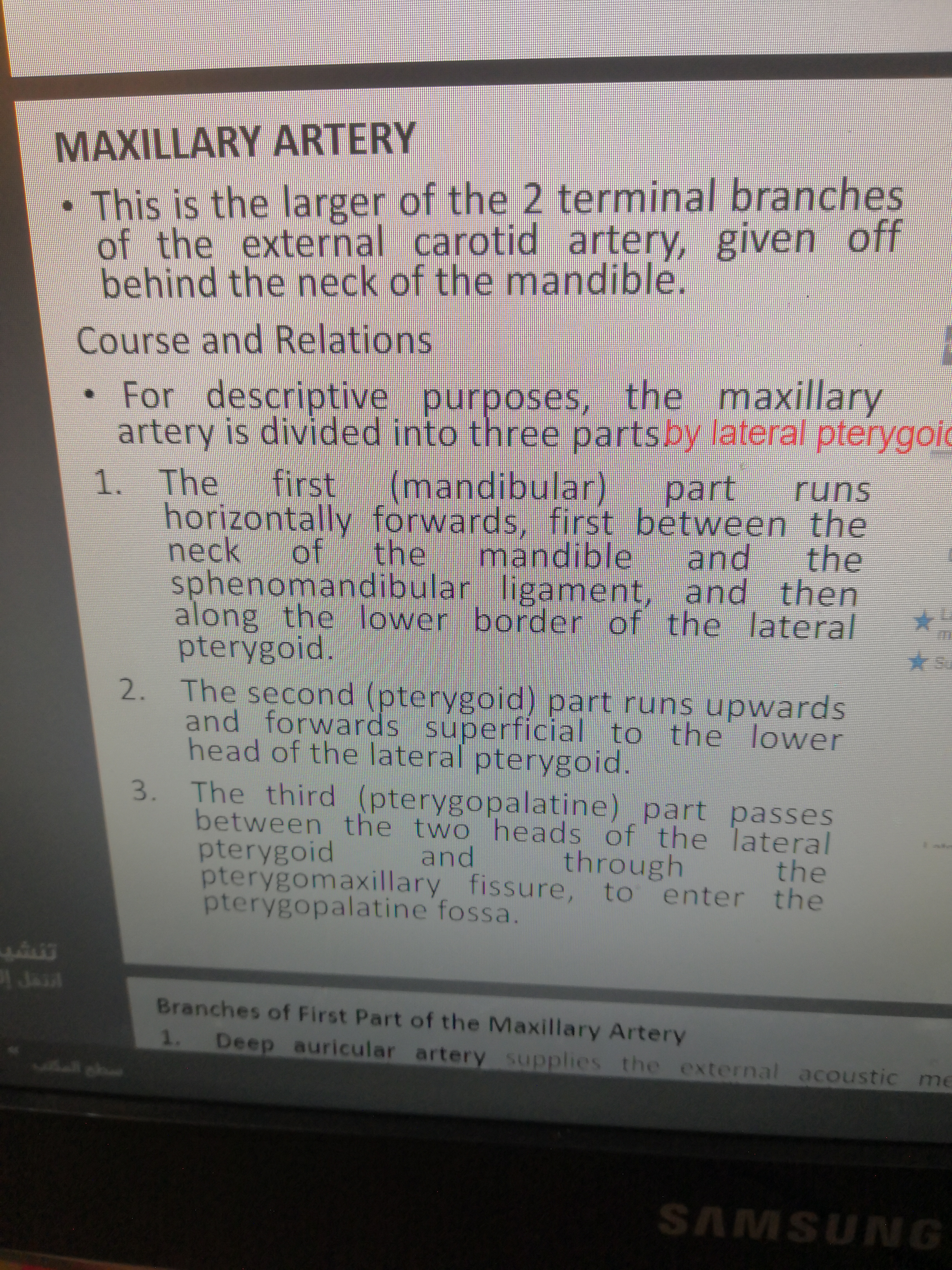What are the characteristics and relations of the maxillary artery?

Understand the Problem
The question is discussing the maxillary artery, specifically its characteristics, course, and divisions. It aims to provide information on its anatomy and relation to other structures.
Answer
The maxillary artery is a major branch of the external carotid artery, divided into mandibular, pterygoid, and pterygopalatine parts.
The maxillary artery is the larger terminal branch of the external carotid artery, located behind the neck of the mandible. Its course is divided into three parts: mandibular (runs horizontally forward), pterygoid (runs upwards and forward), and pterygopalatine (passes between the lateral pterygoid heads to the pterygopalatine fossa).
Answer for screen readers
The maxillary artery is the larger terminal branch of the external carotid artery, located behind the neck of the mandible. Its course is divided into three parts: mandibular (runs horizontally forward), pterygoid (runs upwards and forward), and pterygopalatine (passes between the lateral pterygoid heads to the pterygopalatine fossa).
More Information
The maxillary artery is essential for supplying blood to deep facial structures, maxilla, mandible, and nasal cavity. Its anatomical division aids in understanding its complex pathway.
Tips
A common mistake is confusing the parts and their paths. Use illustrations or diagrams for clarity.
Sources
- Maxillary artery - Anatomy, Branches & Relations + Mnemonic - youtube.com
- Maxillary Artery - an overview | ScienceDirect Topics - sciencedirect.com
AI-generated content may contain errors. Please verify critical information